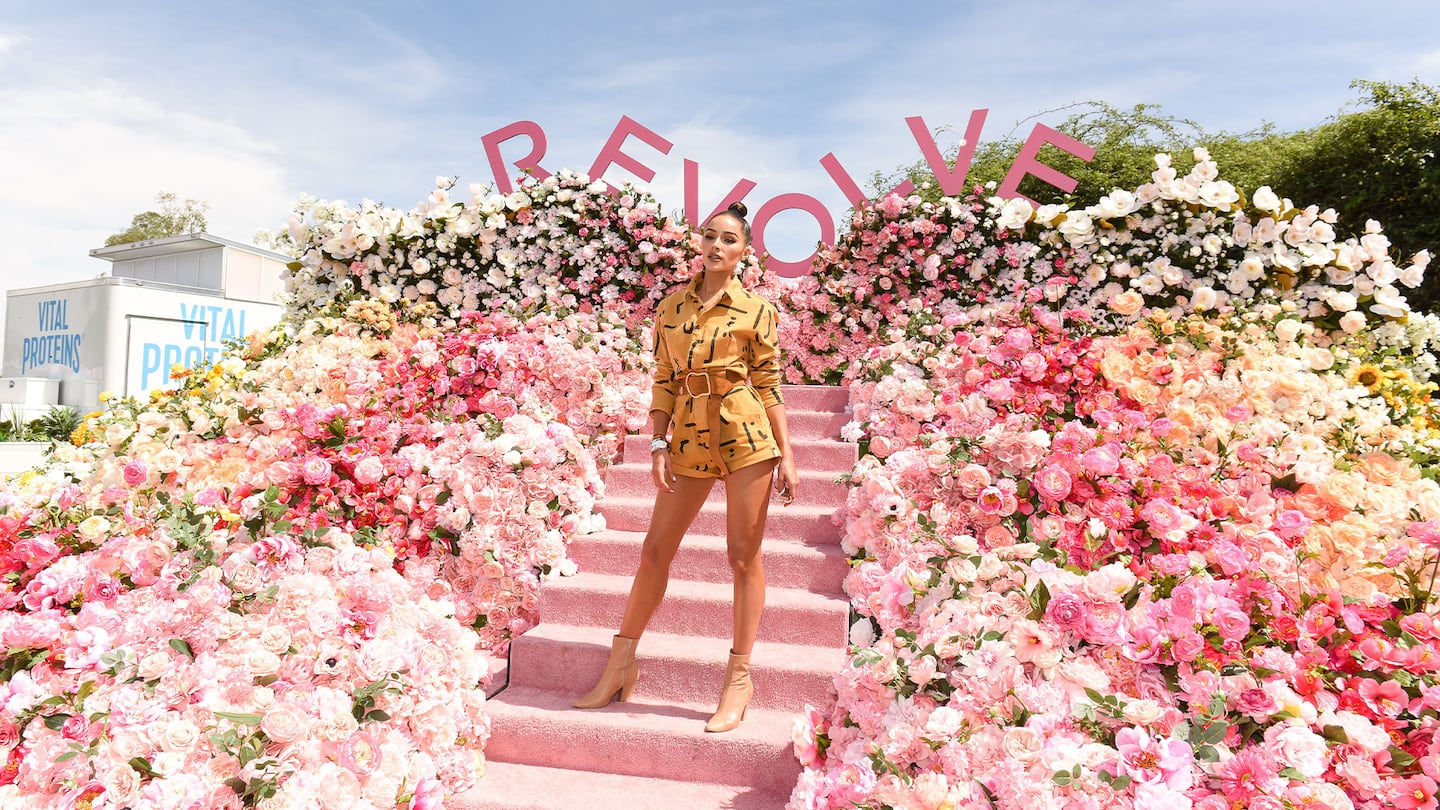
The Business of Fashion
Agenda-setting intelligence, analysis and advice for the global fashion community.

Agenda-setting intelligence, analysis and advice for the global fashion community.

After nearly a decade of banking on influencers to spread the word of its fashion and help sell a certain lifestyle, Revolve is opening its aspirational world up to anyone — regardless of their follower count.
In early March, the brand is opening Revolve Social Club, a space in Los Angeles that will include a lounge, cafe, bar, Instagram-bait photo walls and the company’s first retail store where Revolve-exclusive brands like Song of Style and Camila Coelho will be sold alongside labels like Levi’s and Free People.
The online retailer’s past real-world events and pop-ups were aimed at celebrities and fashion influencers, with the goal of flooding social media with flattering content. The strategy has worked, even as Revolve pivoted from its laser focus on party dresses and festival attire to more diverse offerings during the pandemic. The company reported fourth-quarter and full-year results Wednesday, bringing in $891 million in net sales in 2021, up from $600 million in 2019. Net income was $99.8 million in 2021, compared to $35.6 million in 2019.
But many online retailers and brands are seeing the limits of online marketing; even Revolve can only get so much out of sending another planeload of influencers to the Maldives.
ADVERTISEMENT
“Of course, there will be a number of influencers constantly promoting,” Michael Mente, co-chief executive of Revolve told BoF. “But giving the consumer the experience of the VIP … is the evolution of where we’re going.”
The pop-up is an update to a member’s-only club Revolve ran from 2016 to 2019 in LA. Mente said the company has signed a three-month lease for the space, which will be on West Hollywood’s Melrose Avenue, but anticipates the club will have a longer run.
“Revolve’s influencer mission has propelled them, but it is also restricting,” said Jessica Ramirez, a retail research analyst at Jane Hali & Associates. “Its big festivals and events are only catered to influencers, so it’s aspirational but there isn’t much to participate with.”
Not that Revolve will leave its influencer community behind completely. The new space will include a second floor, with a gym and wellness centre that is members-only. The company will also host its Coachella-timed festival this year for influencers and celebrities in Palm Springs, after pausing the event for two years.
Revolve anticipates the new social club will generate hype for the brand, but the end goal is to get visitors shopping too. At the cafe, for example, coffee and pastries are complimentary with fashion purchases.
“Providing the stage for her to wear the clothes … the cafe for her to brunch in is ultimately a bigger priority for us than racks of clothes within the store,” said Mente. “Ultimately, these are the type of things that drives sales back to the website.”
 Opens in new window
Opens in new windowJessica Simpson, Sean Combs and other early-aughts superstars turned moguls are itching for a comeback. But much has changed about the celebrity fashion business.
The American sportswear brand best known for its logo-stamped underwear allowed the comedian apparent access to its Instagram account.
A $400 million investment in Faire, which pairs brands with retailers, is a sign of how multi-brand stores are here to stay after a decade where direct-to-consumer brands dominated the conversation.
As the German sportswear giant taps surging demand for its Samba and Gazelle sneakers, it’s also taking steps to spread its bets ahead of peak interest.
A profitable, multi-trillion dollar fashion industry populated with brands that generate minimal economic and environmental waste is within our reach, argues Lawrence Lenihan.
RFID technology has made self-checkout far more efficient than traditional scanning kiosks at retailers like Zara and Uniqlo, but the industry at large hesitates to fully embrace the innovation over concerns of theft and customer engagement.
The company has continued to struggle with growing “at scale” and issued a warning in February that revenue may not start increasing again until the fourth quarter.